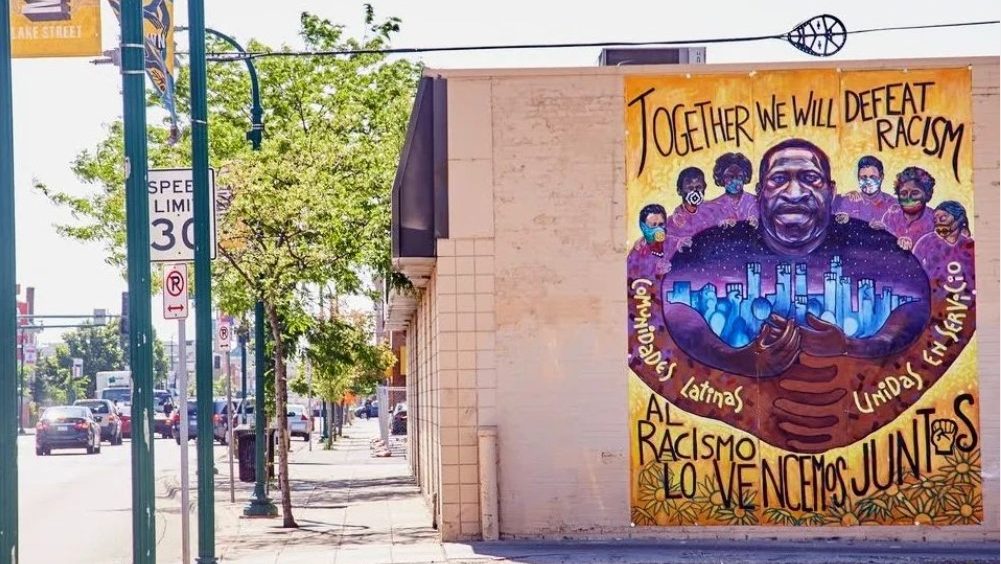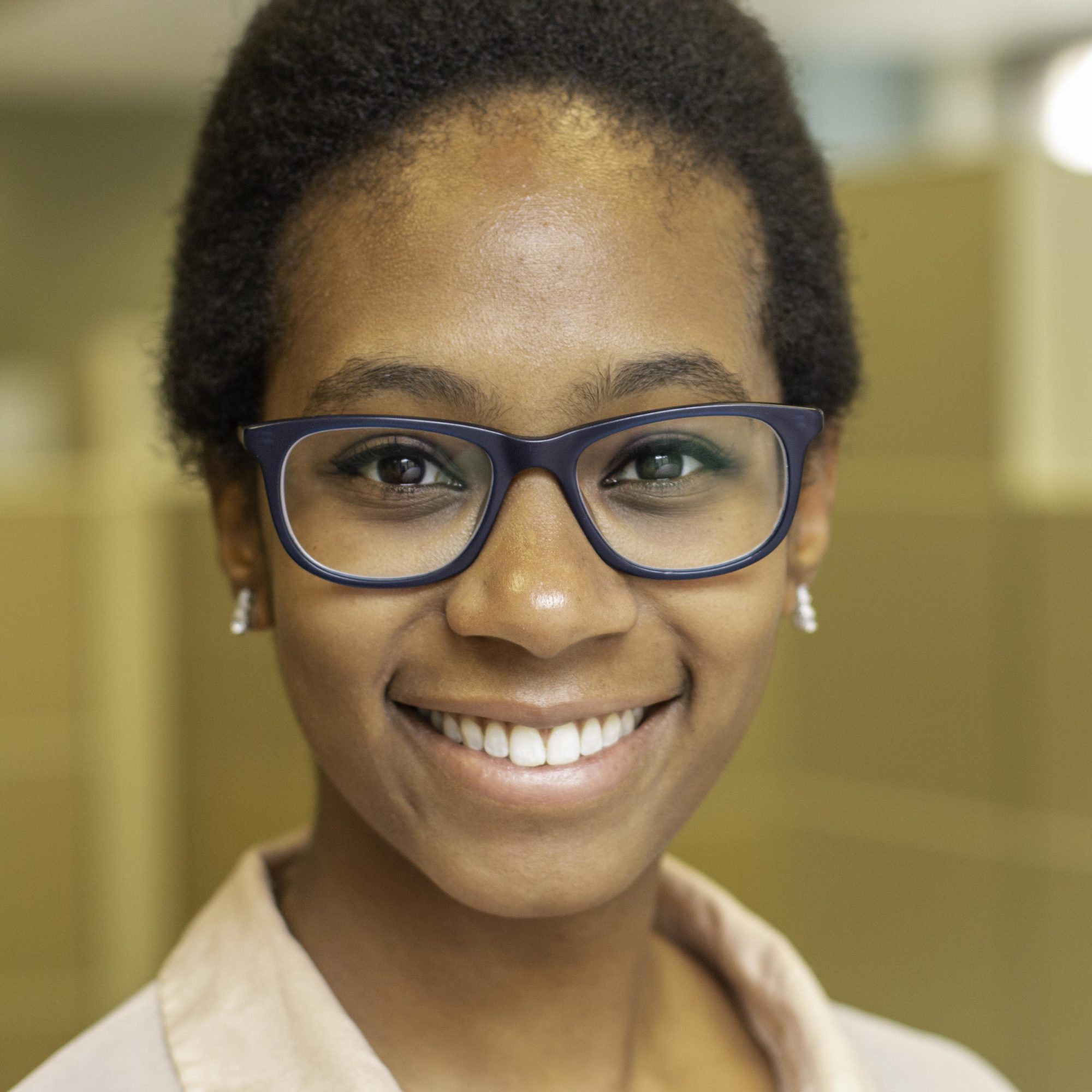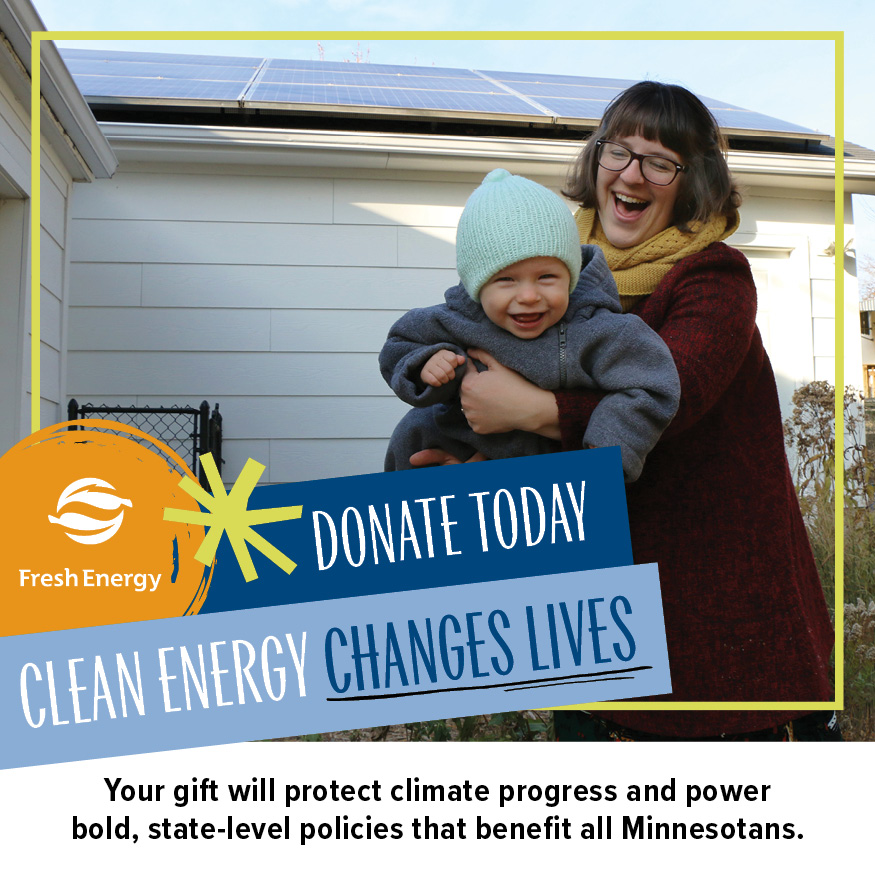
May 25, 2020, will forever be a day that carries many things. That afternoon a man named George Floyd, after buying some things at a local corner store, was murdered by Minneapolis police. A cruel act witnessed by community members and subsequently the whole world. The inhumanity displayed forced an eruption of rage at racial injustice and calls for change that many have been tirelessly demanding for centuries. The uprisings Minnesotans experienced in the Twin Cities spread like a wildfire around the globe. These demonstrations for racial justice were the largest and most multi-cultural that had ever been seen, and they are a part of a deep tradition of resistance that allows us to continue the calls for change and justice.
The months following the uprisings were filled with talk and commitments for racial equity from every corner of United States society. Promises to elevate Black leadership, to support Black businesses, and enact policy changes in policing, education, climate, etc. came from many people. And expectations were high that maybe this time would be different. There was much discussion about how the United States was in the midst of a racial reckoning. Amid a global pandemic that was exacerbating and illuminating health disparities among BIPOC communities, and one climate emergency after another, how could there be a more prescient time for meaningful and substantive change than now?
Fresh Energy has been part of those calls for justice and worked to implement change within the organization. As Director of Culture and Partnerships, I often use the tool of reflection to track where we’ve been and where we’re going. We have our commitments to diversity, equity and inclusion, and anti-racism that continue to guide our programmatic and organizational priorities. We have dedicated spaces for all staff to engage personally and professionally through staff committees: the Diversity, Equity, and Inclusion (DEI) Committee, the Women, Trans, Femme (WTF) Group, the Well-Being Committee, and the Anti-Racism Working Group. We have not shied away from making statements on incidents of racist violence like the killing of Amir Locke by Minneapolis police, and the alarming increase of anti-Asian violence. We are compelled to speak up and insist that a climate-stable future includes safety in our homes and public spaces, prioritization of the health of those most vulnerable, and a rigorous and active democracy—just as much as carbon-neutral energy.
Two years later, I wanted to believe that the social commitments to racial justice meant that the U.S. was making progress. But our country continues to be pummeled with trauma, and every time it feels like a setback. The COVID-19 pandemic is ongoing with wave after wave of new variants. Climate emergencies that present like wildfires, flash flooding, and extreme heat are increasing with a frequency and intensity that we have been warned of. Widening inequality continues to set up those most vulnerable to fall even deeper into poverty and be less resilient to recover from climate and economic shocks. The violence of mass shootings overlaid with racism like in Buffalo, New York, where ten Black people were killed at a grocery store, shows how white supremacy will force its way into even the most mundane spaces because of the people who inhabit it. A reminder that violence interrupts life anywhere. This was proven just days later by the incomprehensible killings of elementary schoolchildren in Uvalde, Texas. Every day, gun violence all over America is terrorizing our communities.
If you’re wondering how this has anything to do with climate policy—just look to the youth who are screaming for action on both gun control and the climate emergency, for they know that they are the most vulnerable to both kinds of violence. The inaction that has stifled progress on climate change feels like what is happening to gun control—horrifying examples of how we must combat and confront these crises. There are too many stories like these.
It makes you fear for the children being born right now; horrifying examples of how we must combat and confront these crises. There are too many stories to cover them all.
However, I have to cast aside that fear, for I have now brought my very first child into this world. Though so many things in the last three months have angered me greatly, I have never felt so much intense joy. The joy of my son smiling at me outweighs the fear I have for him growing up here, simply because it must. It must be how every person who cares for a child, who cares for the future of humanity, carries on. We must carry on together for the protection and creation of a just and livable society.
Fresh Energy is not an organization that is working on gun control or world hunger or the myriad of other crises that plague humanity. Fresh Energy shapes and drives bold policy solutions to achieve equitable carbon-neutral economies, that is our mission. But we are also whole people with families and other dimensions to our identities that are deeply affected by so much going on in our world.
We must continue to acknowledge that carbon-neutral energy cannot alone solve the climate crisis. This is the issue of our time encompassing every fiber of our society, so we must demand that each fiber is restructured to be capable of supporting every living being with care. This will require ongoing reflections and shifts to our work, and because of that we will be more resilient, collaborative, and able to stand with our communities, clear that justice is the central pillar of the future.


